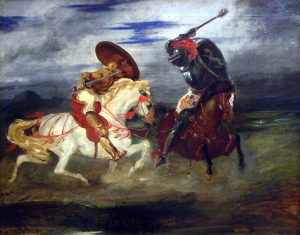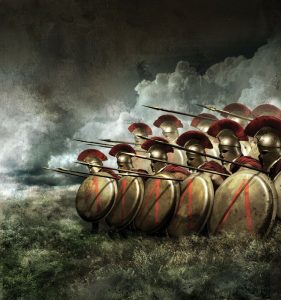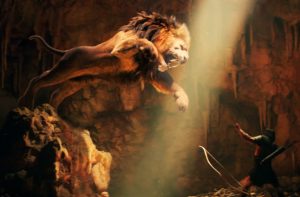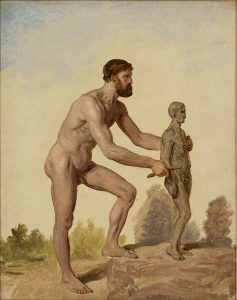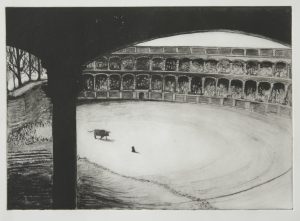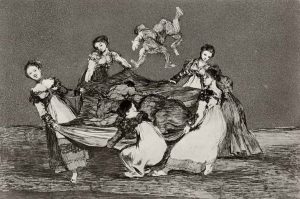In my last post I wrote about the creation of mankind by our benefactor Prometheus, which lead to his betrayal of Zeus and the subsequent creation of Pandora. The world changed after the evils were released from Pandora´s jar. The contrast between good and evil became more evident. Death became a part of human life and judgement could be made about how people had lived their lives. Zeus´s anger wasn’t satisfied yet, mankind was still there and Prometheus hadn´t been punished yet.. (I´m using a slightly adapted and shortened version of this story written by Stephen Fry from the book Mythos. All credits go to him).
After the opening of the jar and the release of evil and death into the world. Pandora, the first woman, bore several children by Epimetheus, including a daughter Pyrrha. Prometheus too fathered a child, a son called Deucalion, possibly by Prometheus´s own mother Clymene, or, if other sources are to believed, by Hesione, an Oceanid. And so the race of men and women multiplied. Prometheus, whose gift of foresight never deserted him (Foresight, but nor prophecy), was keenly aware that Zeus´s anger had yet to be assuaged. He brought Deucalion up to be prepared for the worst kinds of divine retribution. When the boy was old enough he taught him the art of building in wood. Together they constructed an enormous chest. The brother Titans were overjoyed when their children Pyrrha and Deucalion fell in love and married. Time passed and humanity continued to breed and spread, in Zeus´s eyes more like a plague than the beloved playthings he had once adored.
The excuse he needed to visit a second punishment on mankind was furnished by one of their first rulers, Lycaon, King of Arcadia. He was the son of one of the original clay figures formed by Prometheus. Lycaon, either to test Zeus´s omniscience or for other brutal reasons, killed and roasted the flesh of his own son Nyctimus which he served to the God, who had come as a guest to feast at his palace. Zeus was so revolted by this unspeakably gross act that he brought the boy back to life and turned Lycaon into a wolf. Nyctimus had little time to reign in his father´s stead, however, as his forty-nine brothers ravaged the land with violence and behaved so disgustingly that Zeus decided it was time for the whole human experiment to be brought to a close. To that end he gathered the clouds into a storm so intense that the land was flooded and all the people were drowned. All, save Deucalion and Pyrrha who – thanks to the perspicacity of Prometheus- survived the nine days of high water aboard their wooden chest, which floated safely on the flood. Like good survivalists they had kept their chest well stocked, so that when the deluge finally receded and their vessel was able to settle on Mount Parnassus they could survive in the post- diluvian mud and slime.
(according to Ovid at least. Other sources suggest Mount Etna or Mount Athos. Round about the same time Noah was landing on Mount Ararat. Archaeology confirms, it seems, that there really was a Great flood.)
When the world had dried enough for Pyrrha and Deucalion (who are said to be 82 years old at this time) to travel safely down the mountainside, they made their way to Delphi, which lies in the valley below Parnassus. There they consulted the Oracle of Themis, the prophetic Titaness whose special quality was an understanding of the right things to do.
´O Themis, Mother of justice, peace and order, instruct us, we beseech you,´ they cried. ´We are alone in the world now and too advanced in years to fill this empty world with offspring`. ´Children of Prometheus and Epimetheus,` the oracle intoned. `Hear my voice and do as a command. Cover your head and throw the bones of your mother over your shoulder.` ´My mother was Pandora,` said Pyrrha, sitting on the ground. `And I must presume she is drowned. Where could I find her bones?` `My mother is Clymene,` said Deucalion. `Or, if you believe variant sources, she is the Oceanid Hesione. In either case they are immortals and therefore alive and surely unwilling to give up their bones.
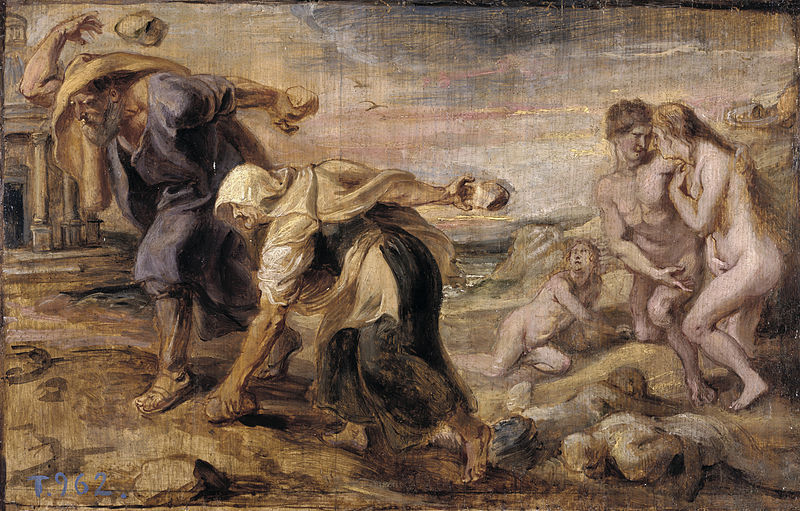
´We must think´ said Pyrrha. ´the bones of our mother. Can they have another meaning? Our mother´s bones. Maternal bones… Think Deucalion, think!
Deucalion covered his head, sat down next to his wife. Moodily he picked up a rock and sent it rolling down the hillside. Pyrrha grabbed his arm. ´Our Mother!´
Deucalion stared at her. She had started slapping the ground with the palms of her hands. `Gaia! ´Gaia is the mother of us all,´ she cried ´Our Mother earth!´ These are the bones of our mother, look..´ she started to gather up rocks from the ground. ´Come on!´
Deucalion got to his feet and scrabbled around, collecting rocks and stones. They made their way across the fields below Delphi, casting them over their shoulders as instructed but not daring to look, their hearts filled with joy. From out of the ground where Pyrrha´s stones had landed sprang girls and women, hundreds of them, smiling and healthy and fully formed. From the earth where Deucalion´s stones had fallen boys and men grew up. And so the Mediterranean world was repopulated by a new race descended through Deucalion and Pyrrha from Prometheus, Epimetheus, Pandora and – most importantly of course- from Gaia. And that is who we are, a compound of foresight and impulse, of all gifts and the earth.
Our human race, now satisfactorily comprised equally of males and females, bred and spread around the world building cities and establishing city states , Ships and chariots, cottages and castles, culture and commerce, merchants and markets, farming and finance, weapons and wheat. In short, civilization began. It was an age of kings, queens, princes and princesses, of hunters, warriors, shepherds, potters and poets. An age of empires, slaves, warfare, trade and treaties. An age of votive offerings, sacrifices and worship. Towns and villages chose their favourite Gods and Goddesses to be guardian deities, patrons and protectors. The immortals themselves were not shy to come down in their own forms, or in the form of humans and animals, to have their way with such humans as appealed them or to punish those that aggravated them and reward those that most fawned on them. The gods never tired of flattery.
Perhaps most importantly the plague of sorrows that had flown from Pandora´s jar ensured that from this point onwards humanity would have to face the inevitability of death in all its forms. Sudden death, slow lingering death, death by violence, death by disease, death by accident, death by murder and death by divine decree. The god Hades found, to his great delight –or the closest to delight that gloomy god could ever manage- that the shades of more and more dead humans began to arrive at his subterranean kingdom. Hermes was assigned a new role- that of Arch Psychopomp, or ´chief conductor of souls´ – a duty he discharged with his customary sprightliness and puckish humour. Though, as the human population grew, only the most important dead were granted the honour of a personal escort by Hermes, the rest were taken by Thanatos, the grim, forbidding figure of Death. The instant that human spirits departed their bodies, Hermes or Thanatos would lead them to the underground cavern where the river Styx (Hate) met the river Acheron (Woe). There the grim and silent Charon held out his hand to receive his payment for ferrying the souls across the Styx. If the dead had no payment to offer they would have to wait on the bank a hundred years before the disobliging Charon consented to take them.
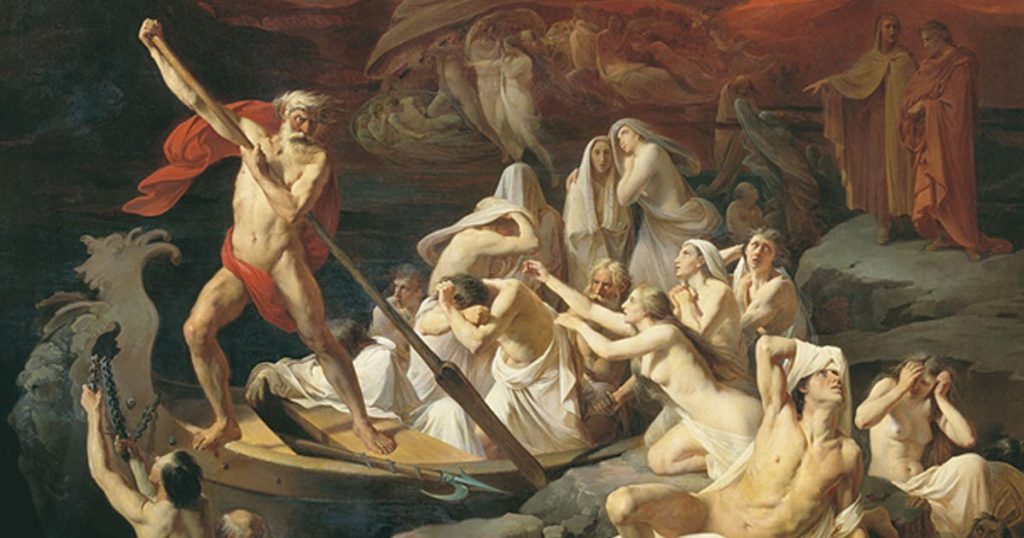
To avoid this limbo it became a custom amongst the living to place some money, usually an obolus, on the tongue of the dying to pay the ferryman and assure save and swift passage. When he had taken his fee, Charon would pull the dead soul aboard and pole his rust-coloured punt or skiff over the black, stygian waters to the disembarkation stage, hell´s muster point. Once dead, no mortal could go back to the upper world. Immortals, if they tasted so much as a morsel of food or drink in Hades, were fated to return to the infernal kingdom. And what was their final destination? It seems that this rather depended on the kind of life they had led. At first Hades himself was arbiter, but in later years he delegated the great weighing up to two sons of Zeus and Europa. They decided whether an individual had lived a heroic, average or punishable wicked life. The heroes and those deemed exceedingly righteous found themselves transported to the Elysian Fields, which lay somewhere on the archipelago known as the Fortunate Isles, or Isles of the Blessed. There is no real agreement as to where this might actually be. Perhaps they are what we now call the Canaries, perhaps the Azores, the Lesser Antilles or even Bermuda. Later descriptions place the Elysian Fields within the kingdom of Hades itself. In these accounts souls who reincarnated three times, on each occasion leading a heroic, just and virtuous life, then earned themselves a transfer from Elysium to the Isles of the Blessed. The blameless majority, whose lives were neither especially virtuous nor especially vicious, might expect to be parked for eternity in the meadows of Asphodel, whose name derived from the white flowers that carpeted its fields. These souls were guaranteed a pleasant enough afterlife: before they arrived they drank the water of forgetfulness from the river Lethe so that a blithe and bland eternity could be passed, untroubled by upsetting memories of earthly life.
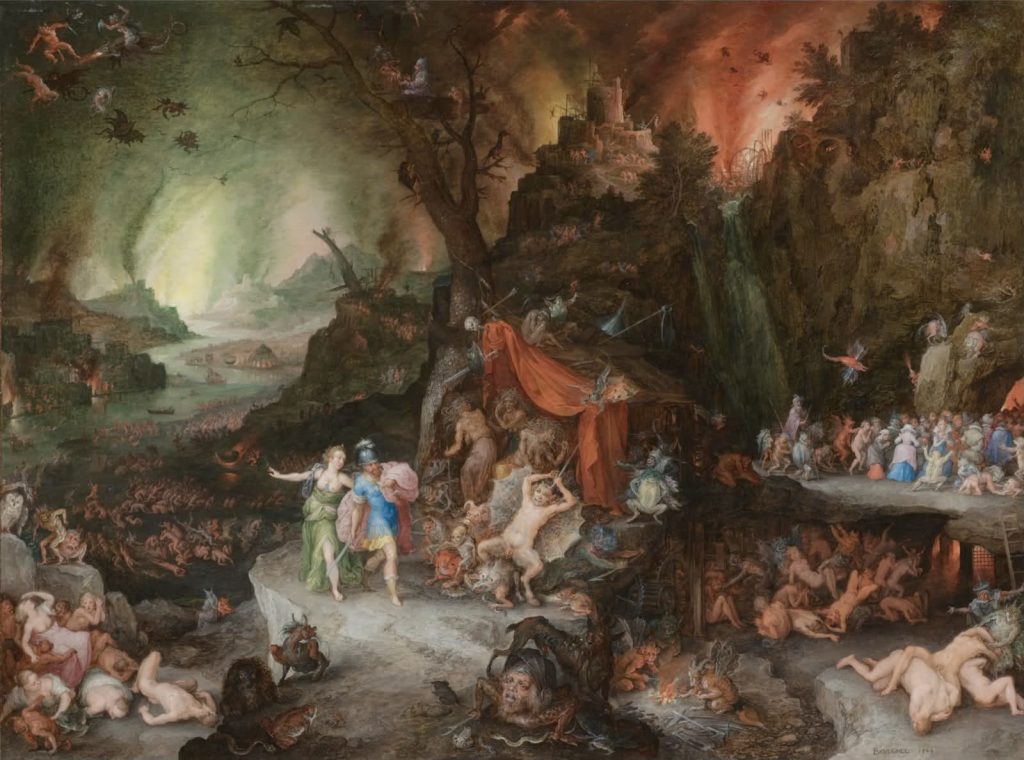
But the sinners – the debauched, blasphemous, wicked and dissolute – what of them? The least of them fitted in the halls of Hades, eternally without feeling, strength or any real consciousness of their existence, but the most profane and unpardonable were taken to the Fields of Punishment, which lay between the meadows of Asphodel and the abysmal depths of Tartarus itself. Here tortures that fitted their crimes with diabolical exactness were inflicted on them for all eternity. Names like Sisyphus, Ixion and tantalus are still known today. While Homer describes the spirits of the departed as keeping the faces and appearances they had in life, alternative accounts tell of a hideous demon called Eurynomos who met the dead and stripped the flesh from their bones. Other poets suggest that the souls of the underworld were capable of speech and given to relating their life stories to each other. Hades was the most jealous of all his jealous family. Not one soul could he bear to lose from his kingdom. Cerberus the three headed dog patrolled the gates. Few, very few, heroes circumvented or duped Thanatos and Cerberus and managed to visit Hades´ realm and return alive to the world above. And so death became a constant in human life, as it remains to this day.
With simmering fury Zeus watched the survival of Pyrrha and Deucalion and the rise of a new race of men and women from the stones of the earth. No one, not even the King of the Gods, could interfere with the will of Gaia. She represented an older, deeper, more permanent order than that of the Olympians and Zeus knew he was powerless to prevent the repopulation of the world. But he could at least turn his attention to Prometheus. The day dawned when Zeus decided the Titan would pay for his betrayal. He looked down from Olympus and saw him in Phocis, assisting in the laying out of a new town, meddling as ever in the affairs of men. Humankind had propagated in the twinkling of an immortal eye, which we would call the passing of several centuries. All this while Prometheus had, with titanic patience, encouraged the spread of civilization amongst Mankind 2.0 – once again teaching people all the arts, crafts and practices of agriculture, manufacture and building.
Adopting the form of an eagle Zeus swooped down and perched on the timbers of a half build temple that was to be dedicated to himself. Prometheus, who had been carving scenes from the life of young Zeus into the pediment, looked up and knew at once that the bird was his old friend. Zeus assumed his proper shape and inspected the carving. ´If that´s supposed to be Adamanthea with me there, you´ve got the proportions all wrong,´ he said.´ artistic licence,´ said Prometheus, whose heart was beating fast. It was the first time the two had spoken since Prometheus stole the fire. ´The time has come to pay for what you have done ,´ said Zeus. Prometheus laid down his hammer and chisel and wiped his hands with a leather cloth. ´Lets go,´ he said. They did not speak or pause for rest or refreshment until they reached the foothills of the Caucasus Mountains, where the black and Caspian seas meet. Along the journey Zeus wanted to say something, had longed to take his friend by the shoulder and embrace him. A weeping apology might have allowed him to forgive and make up. But Prometheus remained silent. Zeus´s stinging sense of being wronged and ill-used flared up anew. ´Besides,´ the god told himself, ´great rulers cannot be seen to exhibit weakness, especially when it comes to betrayal by those close to them.´
Prometheus shaded his eyes and looked up. He saw the three Cyclops standing on a great sloping wall of rock that formed one side of the tallest mountain. ´I know you´re good at climbing up the sides of mountains,´ Zeus said with what he hoped was icy sarcasm, but which emerged even to his ears as something more like sulky muttering. ´So climb.´ When Prometheus reached the place where the Cyclops were, they bound and fettered him and stretched him out on his back, hammering his shackles into the rock with mighty pegs of unbreakable iron. Two beautiful eagles swept down from the sky and glided close to Prometheus, blocking the sunlight. He could hear the hot wind ruffling their feathers. Zeus called up to him. ´You will lie chained to this rock forever. There is no hope of escape or forgiveness, not in all perpetuity. Each day these eagles will come to tear out your liver, just like you tore out my heart. They will eat it in front of your eyes. Since you are immortal it will grow back every night. This torture will never end. Each day the agony will seem greater. You will have nothing but time in which to consider the enormity of your crime and the folly of your actions. You who were named ´foresight´ showed none when you defied the King of the Gods.´ Zeus´s voice rang from the canyons and ravines. ´Well? Have you nothing to say? Prometheus sighed. ´You are wrong, Zeus,´ he said. ´I thought my actions through with great care. I weighted my comfort against the future of the race of man. I see now that they will flourish and prosper independently of any immortals, even you. Knowing this is balm for any pain.´
Zeus stared at his formed friend for a long time before speaking. ´You are not worth eagles,´ he said with an awful coldness. ´Let them be vultures.´ The two eagles immediately changed into rank, ugly vultures who circled the outstretched body once before falling upon it. Their razor-sharp talons sliced open the Titan´s side and with hideous screeches of triumph they began to feast. Prometheus, mankind´s chief creator, advocate and friend, taught us, stole for us and sacrificed himself for us. We all possess our share of Promethean fire, without it we would not be human. It is right to pity and admire him but, unlike the jealous and selfish gods he would never ask to be worshipped, praised and adored. And it might make you happy to know that, despite the eternal punishment to which he was doomed, one day a hero would arise powerful enough to defy Zeus, unbind humanity´s champion and set him free.
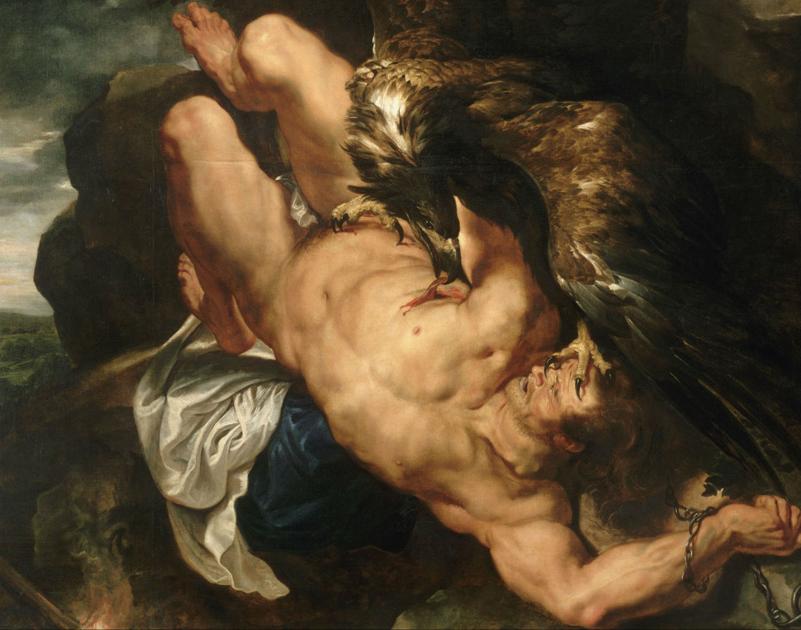
In Ancient Greece stories were taught not through books, but through performance, theatre and story-telling. The stories we know today have been pieced together through various sources and give us a lot of insight in the beliefs and values of the Greeks. Playwrights and poets competed with each other to have their plays and tragedies performed for the public, and the best of those pieces were written and handed down through the generations. By reading we may come to a deeper understanding and enriching of our own thoughts and experiences, we come to have a sense of what is important when it comes to our behaviour and as we make comparisons we come to know more about ourselves.
The Greeks sacrificed to the Gods and the Gods could never get enough of these signs of worship and would intervene and punish those who didn’t show them proper respect.
Through the laws that were in place in the various city-states in Greece open crimes were more easily controlled. Covert crime was prevented through the idea of a judgement after death. When you died your soul was stripped from your body, and all the things you did during your lifetime were visible on your soul. If, for example, you led a life of corruption this corruption would be visible on your soul for the judges to see. Which made it easy for these judges to decide where your soul would spend eternity.
As you have read, even an immortal like Prometheus was not save from punishment. To go against Zeus shows us that all actions have consequences. It can make us think about punishment and the fairness of it. Luckily for Prometheus his punishment was not going to last forever. In my next blog post I will write about the Greek heroes and how Prometheus was saved from his terrible fate.
For more about Greek mythology I recommend the following:
Theogony by Hesiod, translated by M.L. West.
The Library of Greek Mythology by Apollodorus, translated by Robin Hard.
Myth and Philosophy: A Contest of Truths by Lawrence J. Hatab.
The Iliad and Odyssey by Homer, translated by Robert Fagles.
Mythology: Timeless Tales of Gods and Heroes by Edith Hamilton.
Mythos and Heroes by Stephen Fry.
